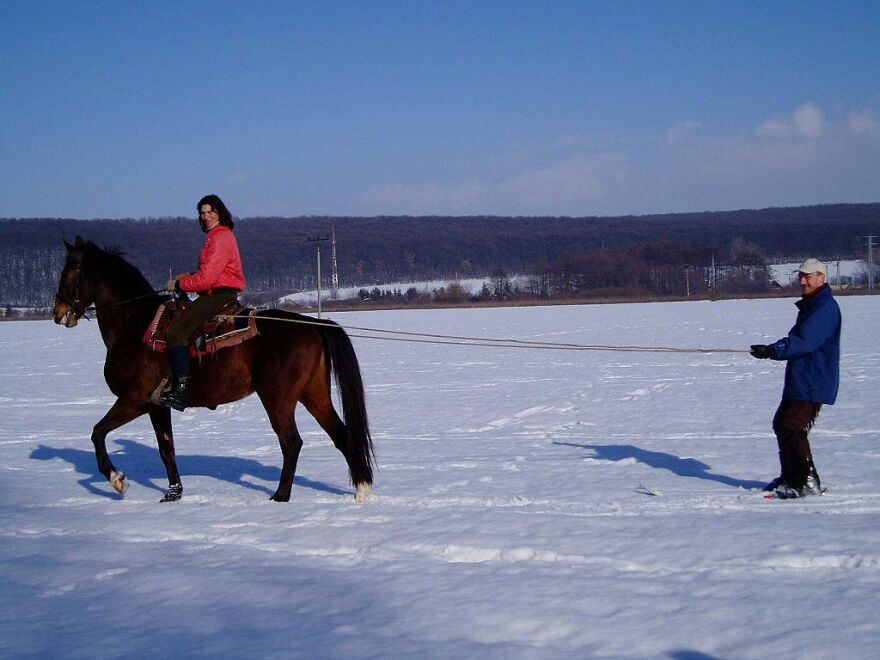With erratic temperatures and snow, this year winter was weird in Montana. One unique sport that brings together horseback riding and skiing faced significant challenges because of the quickly changing weather.
Melissa Ostrander had to put on another layer at the Red Lodge rodeo grounds on a recent Saturday morning while getting the horses ready for their races.
"Yeah this is actually the coldest race we’ve had this year. It’s been like 45 degrees. Which is not conducive to skijoring," Ostrander said.
Skijoring is a sport where skiers hold on to a rope as they are pulled by a horse being ridden at breakneck speeds.

"It’s awesome to be able to be able to ride your horses in the summer, hunt and camp in the fall, skijoring in the winter. And then you’re ready for summer again," Ostrander said.
Most of the skijoring races scheduled in Montana this year were canceled due to lack of snow. Out of 12 races in the state seven were canceled because of weather.
Cathy Whitlock, director of the Montana State University Paleoecology Lab, studies Montana’s climate. She says warmer, shorter winters, and more inconsistent ones, like the one we just experienced may become the norm.
"Our mountains have been getting near normal snowpack this year but I think everyone knows that it comes episodically and it’s really heavy and wet and it’s gonna melt pretty quickly this spring," Whitlock said.
A non-profit group of independent scientists released new research this week saying spring in Montana is getting warmer and lasting longer. According to the group Climate Central, winter in Montana is six days shorter than it was 50 years ago.
Kristen Beck co-organizes the National Final Skijoring Races in Red Lodge. The race happened days before large gatherings started getting canceled due to the novel coronavirus.
Beck said the cold weather for the race was a surprise.
"Honestly we were coming into this weekend thinking we were gonna have sunny skies and 40 degree weather which is what we’re known for. Then the snow came in and our biggest concern always is the horse track and the safety of the horses and so it causes you to do reconfiguring and the weather that we’ve had has been ball curves left and right," Beck said.
Sherri Weamer volunteers during the race and is a member of the Red Lodge chamber of commerce. She says skijor races bring in money to local businesses and benefit nonprofits in the area.
"A great percentage of what they bring in today actually gets donated back to many nonprofits around town. Along with that just bringing folks to town to enjoy Red Lodge to stay in our motels, dine in all our fantastic restaurants," Weamer said.
Last year the race donated over $2,000 to local nonprofits, which Weamer says is significant for small towns.
Beck says as the sports popularity continues to grow, Red Lodge and other communities with skijor races will just have to hope for snow.
"You just can’t tell. Mother nature does what mother nature does and then we do the best that we can to work with it," Beck said.


